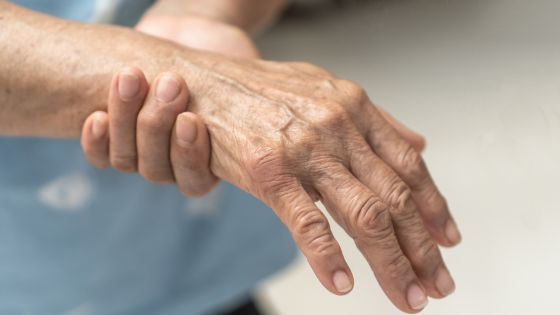Guillain-Barré Syndrome (GBS) is a rare autoimmune disorder that can occur after receiving a vaccine, including the flu and tetanus shots. While the risk of developing GBS after vaccination is low, it is still essential to be aware of the symptoms and seek appropriate medical attention. In this blog post, we will discuss how to recognize and treat GBS from Flu Shot and GBS from Tetanus Shot, providing valuable information for both patients and healthcare providers.

What is Guillain-Barre Syndrome?
Guillain-Barre Syndrome is a rare autoimmune disorder that affects the peripheral nervous system. The condition occurs when the immune system mistakenly attacks the nerves that control muscle movement and sensation. This can lead to muscle weakness, numbness, tingling, and other symptoms. In severe cases, GBS can cause paralysis and respiratory failure, which may require hospitalization and mechanical ventilation.
Symptoms of GBS
The symptoms of GBS can vary from person to person, but they typically begin with muscle weakness or tingling sensations in the legs or arms. The weakness may progress to other parts of the body, and can cause difficulty breathing, swallowing, and speaking. Other symptoms of GBS can include:
- Numbness or tingling in the hands, feet, or face
- Loss of coordination or balance
- Muscle pain or cramping
- Difficulty with bladder or bowel control
- Rapid heart rate or changes in blood pressure
- Difficulty with eye or facial movements
It is important to note that these symptoms can develop quickly, over a period of hours or days. In some cases, the symptoms may appear weeks or even months after vaccination.
GBS and Vaccines
While GBS is a rare condition, it has been associated with certain vaccines, including the flu shot and tetanus shot. According to the Centers for Disease Control and Prevention (CDC), the risk of developing GBS after vaccination is very small – less than one in a million doses. However, it is important to recognize the symptoms and seek prompt medical attention if necessary.
The exact cause of GBS after vaccination is not known, but it is believed to be related to an immune response triggered by the vaccine. This response can cause inflammation in the nerves, leading to the symptoms of GBS. It is important to note that the risk of developing GBS from a vaccine is much lower than the risk of developing GBS from a natural infection.
How to Recognize GBS after Vaccination
If you have received a flu shot or tetanus shot and are experiencing symptoms of GBS, it is important to seek medical attention right away. Your healthcare provider will perform a physical exam and may order tests to diagnose the condition. These tests may include a nerve conduction study, which measures the electrical activity in your nerves, or a spinal tap, which checks for inflammation in your spinal fluid.
It is important to note that GBS can be difficult to diagnose, as the symptoms can be similar to other neurological conditions. Your healthcare provider may refer you to a neurologist, who specializes in treating conditions of the nervous system.
Treatment for GBS
There is no cure for GBS, but treatment can help manage the symptoms and prevent complications. In severe cases, hospitalization may be necessary to provide supportive care, such as mechanical ventilation and monitoring for complications. Treatment for GBS may include:
● Intravenous immunoglobulin (IVIG): This treatment involves infusing antibodies from donated blood plasma into your bloodstream. These antibodies can help suppress the immune response and reduce inflammation in the nerves.
● Plasma exchange: This treatment involves removing your plasma (the liquid portion of your blood) and replacing it with donor plasma. This can help remove harmful antibodies from your body and reduce inflammation in the nerves.
● Medications for pain and muscle weakness: Your healthcare provider may prescribe medications to help manage the symptoms of GBS, such as pain and muscle weakness.
● Physical therapy: Physical therapy can help improve muscle strength, coordination, and balance, and may be recommended to help you regain function after GBS.
It is important to note that recovery from GBS can be slow and may take several months or even years. Some people may experience long-term complications, such as residual muscle weakness or neuropathy (nerve damage).
Prevention of GBS after Vaccination
While the risk of developing GBS after vaccination is very small, there are some steps you can take to reduce your risk:
● Be aware of the symptoms of GBS: If you have received a flu shot or tetanus shot and are experiencing symptoms of GBS, seek medical attention right away.
● Talk to your healthcare provider: If you have a history of GBS or other neurological conditions, talk to your healthcare provider before receiving a vaccine.
● Report any adverse reactions: If you experience any adverse reactions after receiving a vaccine, report them to the Vaccine Adverse Event Reporting System (VAERS). This system helps monitor the safety of vaccines and can help identify any potential problems.
Conclusion
If you or someone you know has been diagnosed with GBS after vaccination, it is crucial to seek medical attention immediately. With the right treatment and care, most people with GBS can recover fully or significantly improve. We hope that this guide has provided you with valuable information on how to recognize and treat GBS after vaccination.
For more informative articles on health and wellness, please subscribe to our blog today. If you suspect that you or someone you know may be experiencing GBS after a flu or tetanus shot, please seek medical attention immediately. And if you have any questions or concerns about GBS from Flu Shot and GBS from Tetanus Shot, please don’t hesitate to consult with Vaccine Law.
